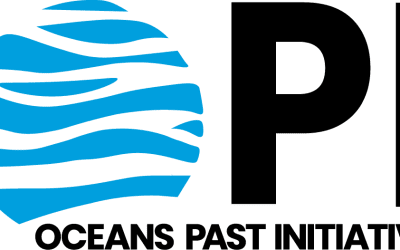Oceans Past Initiative
News
Stay up to date with the latest from the Oceans Past community. In this section, we’ll share updates on upcoming conferences, recent research highlights, opportunities, calls for papers, and other relevant announcements.
Oceans Past XI: deadline for Abstracts & ECR Funding Award has been EXTENDED!
Deadline for Abstracts & ECR Funding Award submissions for the OPI XI Conference has been EXTENDED!New closing date: January 15th 2026 The Oceans Past Initiative connects scholars and...
2026 OPI Membership Is Now Live
Thank you for your continued support of OPI. We would like to remind you to renew your 2026 membership, which expires on 31 December each year. Why become an OPI member? OPI membership gives you...
Ancient Isotopes Reveal Pre-Lessepsian Invasions and Recent Overfishing in the Levant: Insights from Holocene Fish Remains
Ancient Isotopes Reveal Pre-Lessepsian Invasions and Recent Overfishing in the Levant: Insights from Holocene Fish RemainsIn our latest paper in the journal Mediterranean Marine Science,...
New research on Europe’s forgotten oyster reefs
A groundbreaking study published in Nature Sustainability has unveiled the extensive historical presence of European oyster reefs, highlighting their significant ecological role and the profound...
New Study Reveals Earliest Evidence of Whale Bone Working in Late Paleolithic Europe
New Study Reveals Earliest Evidence of Whale Bone Working in Late Paleolithic Europe A new paper published in Nature Communications presents groundbreaking evidence of whale bone working in the Bay...
Sentinels of Change: What Sea Lions and Fur Seals Can Tell Us About 770 Years of Ocean History
A new study in Marine Ecology Progress Series takes a deep dive into the long-term ecological changes in New Zealand’s marine ecosystems, through the diets of two iconic predators: the New Zealand...
Cetaceans presence in Portuguese waters since the Middle Palaeolithic
A recent study published in PLOS ONE sheds light on ancient whaling practices in Portugal, revealing the deep-rooted relationship between humans and cetaceans in the region. By analyzing...
Continuous mitochondrial diversity of Danube sturgeon species over millennia
New Study Reveals Continuous mitochondrial diversity of Danube sturgeon species over millenniaSturgeons, iconic, culturally significant, and ecologically vital fishes, have long shaped human...
Global Plate, Global Footprint: How the UK’s Seafood Habits Went Worldwide
What do your fish and chips say about global trade, overfishing, and climate impact? A new study published in Reviews in Fish Biology and Fisheries dives into how the United Kingdom’s appetite for...
Subscribe to our mailing list
Mission
The ocean is central to life on Earth – it harbours immense biodiversity, regulates the climate, and provides essential services to human societies. Human activities are transforming the ocean at an uncertain pace and scale. Understanding the extent and diversity of these changes requires a historical perspective on human-ocean interactions throughout time.
Mission 1
Advance interdisciplinary research to uncover the history of marine ecosystems and human-ocean relationships.
Mission 2
Connecting researchers, traditional knowledge holders, practitioners, and policymakers.
Mission 3
Generate insights from the past to guide evidence-based actions for healthier oceans and sustainable societies.









